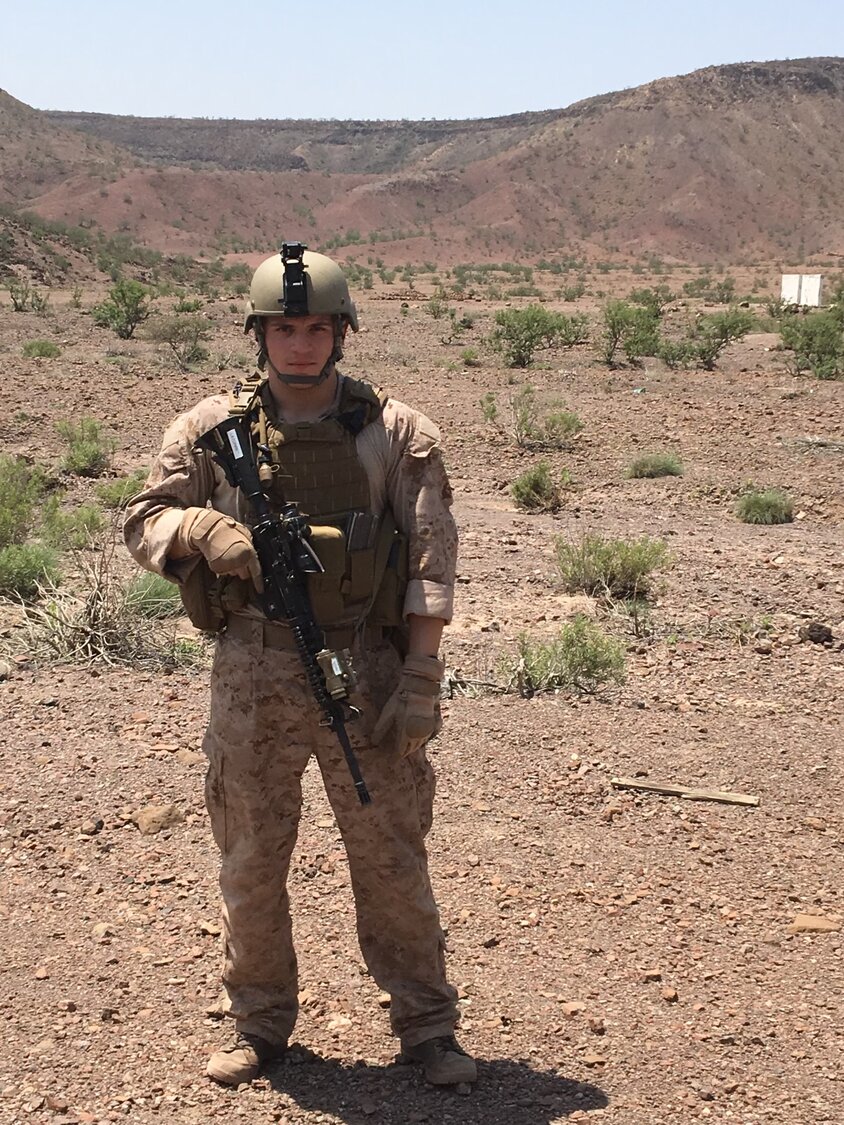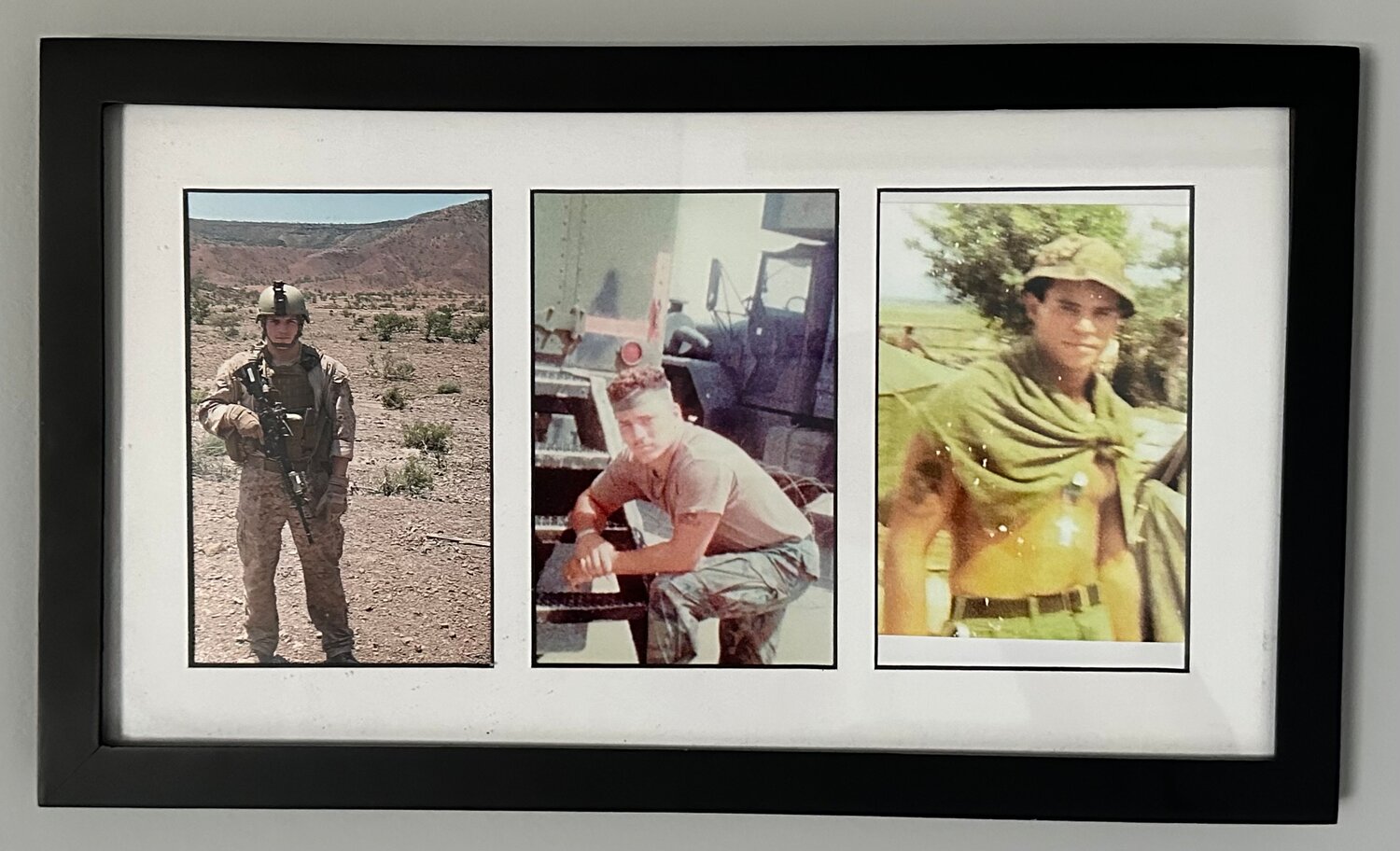Elmont veteran tackles new frontiers boxing, mental health counseling
Peter Latorre, an Elmont native who graduated from Sewanhaka High School in 2015, has taken on new frontiers, as a boxer and an aspiring mental health counselor for veterans after serving in the Marine Corps.
Latorre, 26, was a Marine from 2015 to 2019, and was honorably discharged from Camp Lejeune, in North Carolina, where he was a corporal. He earned an associate’s degree in liberal arts from Nassau Community College in 2021, and a bachelor’s degree in psychology from Hofstra University this year.
When he was stationed in Japan during his last deployment, his fellow service members knew where they could find him — hitting the heavy bag in the mixed martial arts room. When he returned home in 2020, he found a boxing home for himself at the Westbury Boxing Club, with his coach, Joe Gadgian. He now lives in Lynbrook.
On Aug. 6, at the Texas Troubadour Theatre in Nashville, Tennessee, Latorre won his first official bout, over fellow welterweight Dustin Garret, who was also making his boxing debut, with a first-round knockout.
But the experience has been a humbling one for Latorre so far. “Being in a sport where it’s very individually demanding, it really tests your character and it tests your discipline, because no one else is fighting your fights for you,” he said. “It’s you versus you. I mean, obviously you’re fighting someone else, but it’s really about how hard you work. All of the hard work is done before the fight.”
Louie Latorre, Peter’s father, who spent 16 years in the Army and served in Operation Desert Storm in the first Gulf War, said he was immensely proud of what his son has accomplished as a “boxing machine.”
The biggest lesson Peter said he has learned from the sport is that losing is a part of success.
“It’s OK that sometimes things just aren’t going to go your way, and I feel like that’s the way that God works,” he said. “If God wants you to succeed in that moment, then he will allow you to succeed, and if you’re not meant to succeed in that moment, it’s because there’s a bigger reason, and you still have to learn something,” he said.
He credits his wife, Navy veteran Isabel Latorre, for being a huge support in his new endeavor. “At the end of the day, obviously I’m the one getting down and dirty with a lot of the stuff in my life,” Peter said, “but without having her as a support system, I’m not sure if I would be as successful as I am.”
His next fight will take place at Melrose Ballroom in Queens on Sept. 7.
Peter is one of many veterans in his family, which has a tradition of service going back to World War II. “Almost every single man that I’ve had a close relationship with on my dad’s side of the family, they were all combat veterans, so I kind of felt like they were boots that I had to kind of put my feet in,” he said. “I wanted to have that in common with them, because I looked up to them when I was growing up.”
That inspired him to serve as well, and after he was discharged, he decided he would take the next step and work toward becoming a mental health counselor for veterans. He was recently accepted into the master’s program for rehabilitation counseling in mental health at Hofstra.
“I feel like it’s where I belong,” Latorre said. “I feel it’s something that I was meant to do. Being that I was so young when I lost both of my grandfathers, it kind of helps me, I guess, heal from not being able to talk to them about their mental health and their lives and experiences.”
His father, who now lives in Levittown, said that his son has been a helpful shoulder to lean on, being only a phone call away.
“A lot of the veterans prior to my service, like the ones like my dad from World War II, Korea, Vietnam, they never had the people like Pete pushing through,” Louie said.
The importance of having a mental health counselor close by is something that is important to Louie, and he is proud that his son is pursuing that line of work. “Veterans need to know they’ve got people out there who’ve got their back,” he said, “especially when it comes to PTSD and mental health issues, anxiety, trying to fit back into civilian life after the military.”











